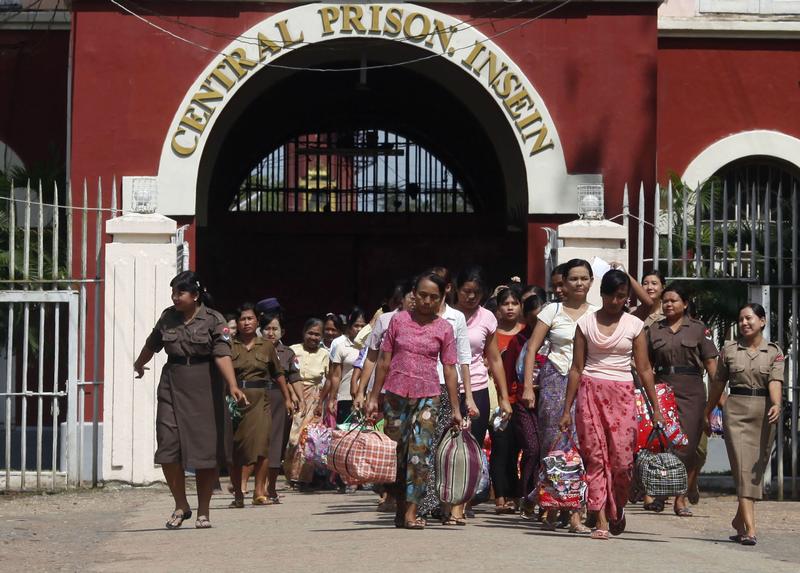As a political prisoner, Hla Phone was afforded a certain status behind bars. He was treated relatively well, allowed to spend the days reading and watching television.
But other inmates weren’t so lucky.
In an interview with Myanmar Now, Hla Phone, who was convicted of online defamation in November and released in a recent amnesty, described a tiered system of abuse within Insein, Burma’s most infamous correctional facility on the outskirts of Rangoon.
“Once new prisoners arrived, the hardened criminals appointed by the prison management as disciplinarians would divide them into two groups,” he said.
The divisions were tied to who had money and who didn’t. Poor convicts were beaten up once they arrived and assigned hard work, Hla Phone said.
“Those who cannot pay money had to learn standard behaviour for prisoners. During that session, they were slapped and kicked by hardened criminals. Those who can pay the money just have to pay 5,000 kyats [$3.50] each and were exempted from that drill,” he said.
Alleged abuses within Insein are not new. Built in the late 19th century by the British, the prison has long been a source of torment and anguish.
During Burma’s pro-democracy movement that started in 1988, Insein became a dumping ground for activists associated with Aung San Suu Kyi’s National League for Democracy.
Some of them now serve in the NLD government that came to power last year after nearly five decades of military rule.
Although groups like the Assistance Association for Political Prisoners have documented many cases of physical and mental torture that took place in Insein, conditions have improved over the years, especially since the International Committee of the Red Cross visited in 1999. Today Insein holds about 11,000 inmates.
But despite such progress, beatings and extortion remain common, Hla Phone said.
[related]
“If an ordinary convict cannot afford a bribe, he will be assigned to tasks such as carrying excrement and working in the plantations inside the prison,” he alleged. “Wealthy prisoners can lead a carefree lifestyle.”
Insein Prison Superintendent Myo Oo did not respond to phone calls seeking comment, but Min Tun Soe, the deputy director of the Correctional Department, told Myanmar Now that action would be taken if his department receives complaints.
“Nobody can ask prisoners for money. The existing laws do not allow that,” he said.
This story was originally published by Myanmar Now here.



